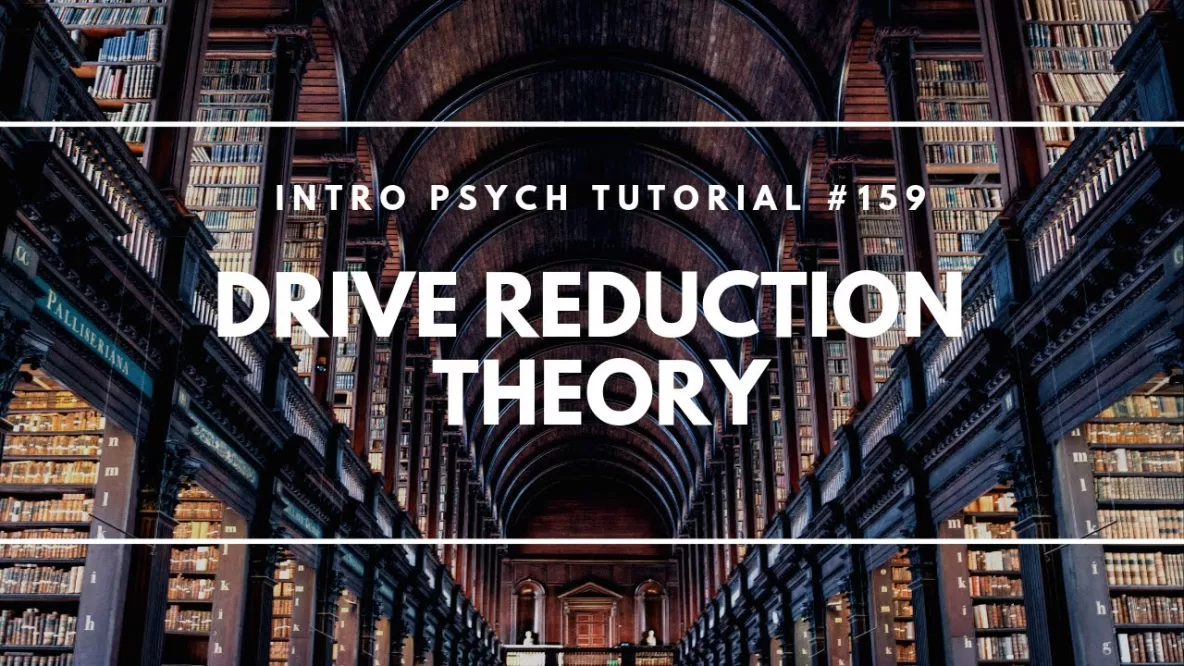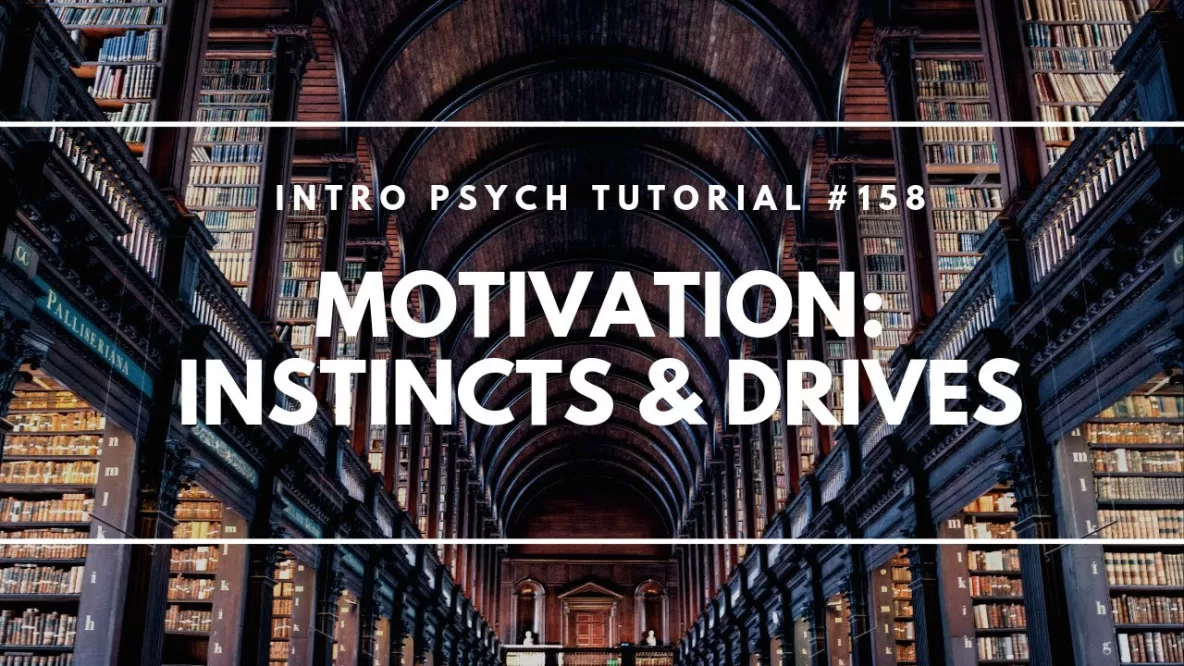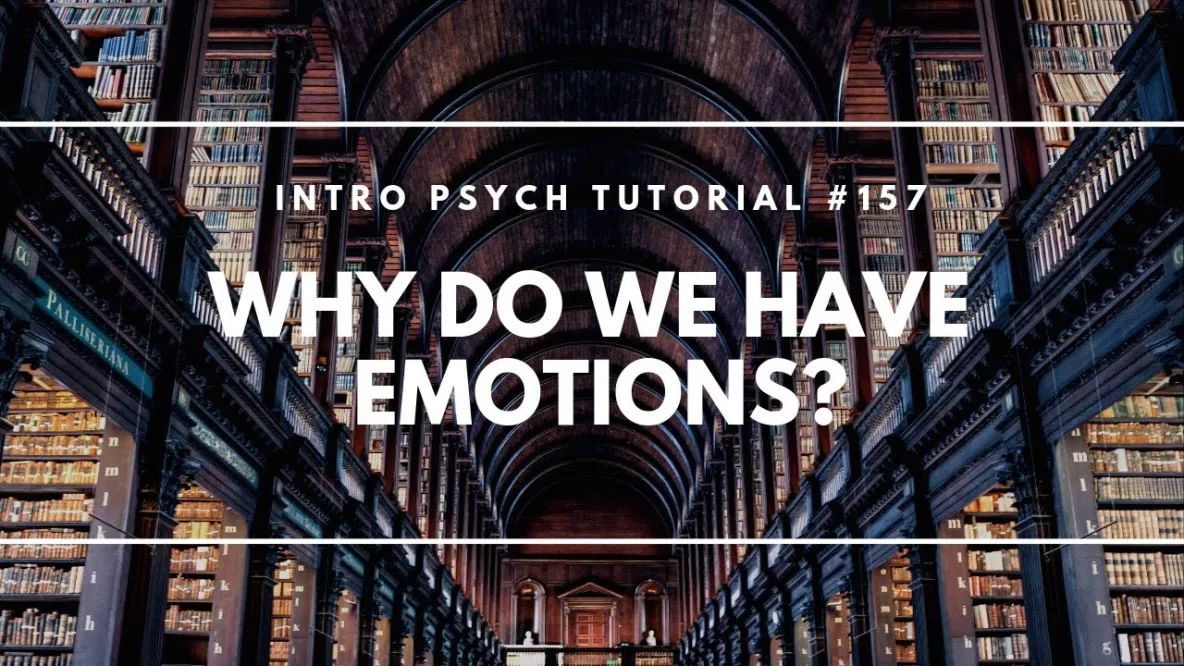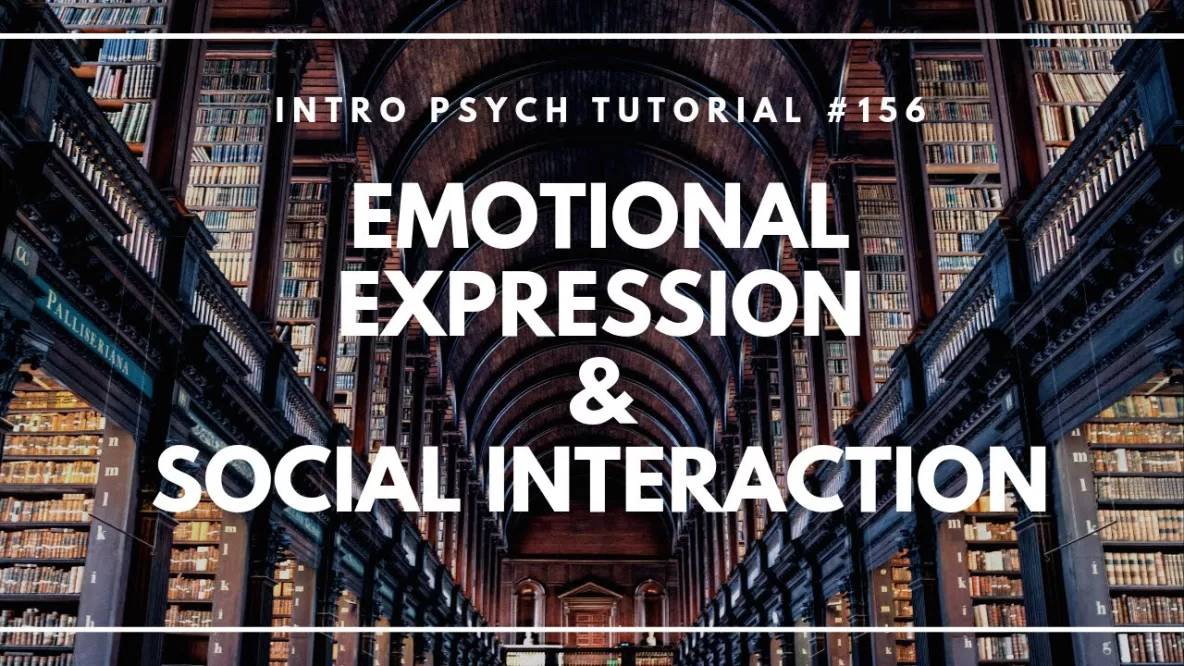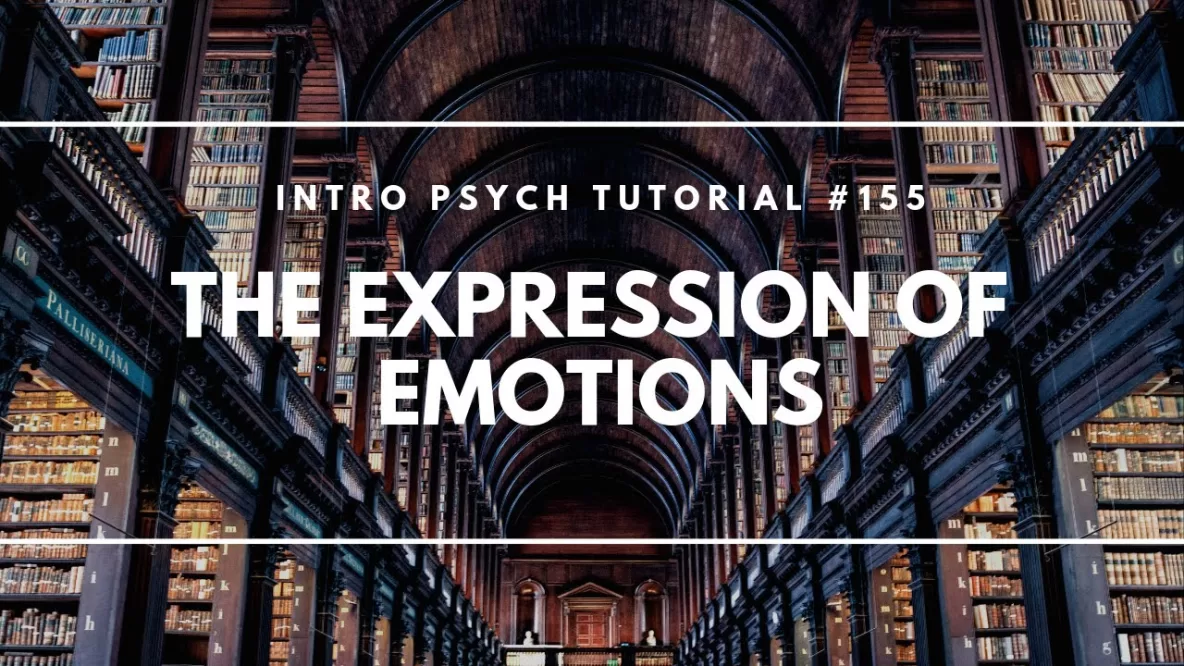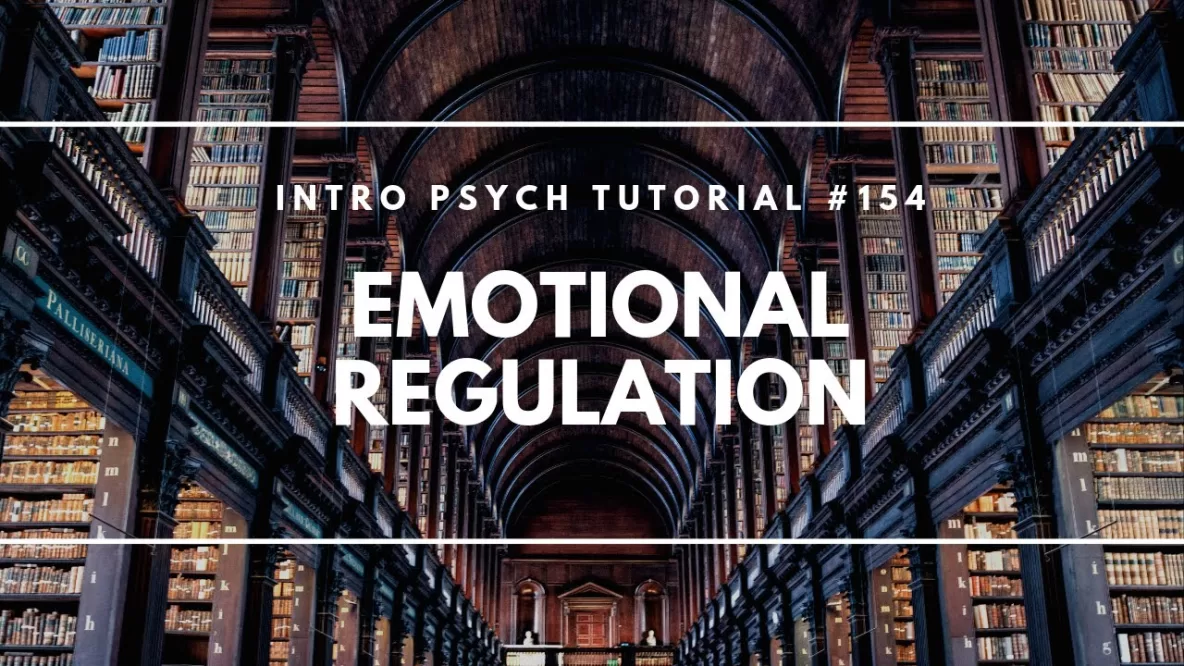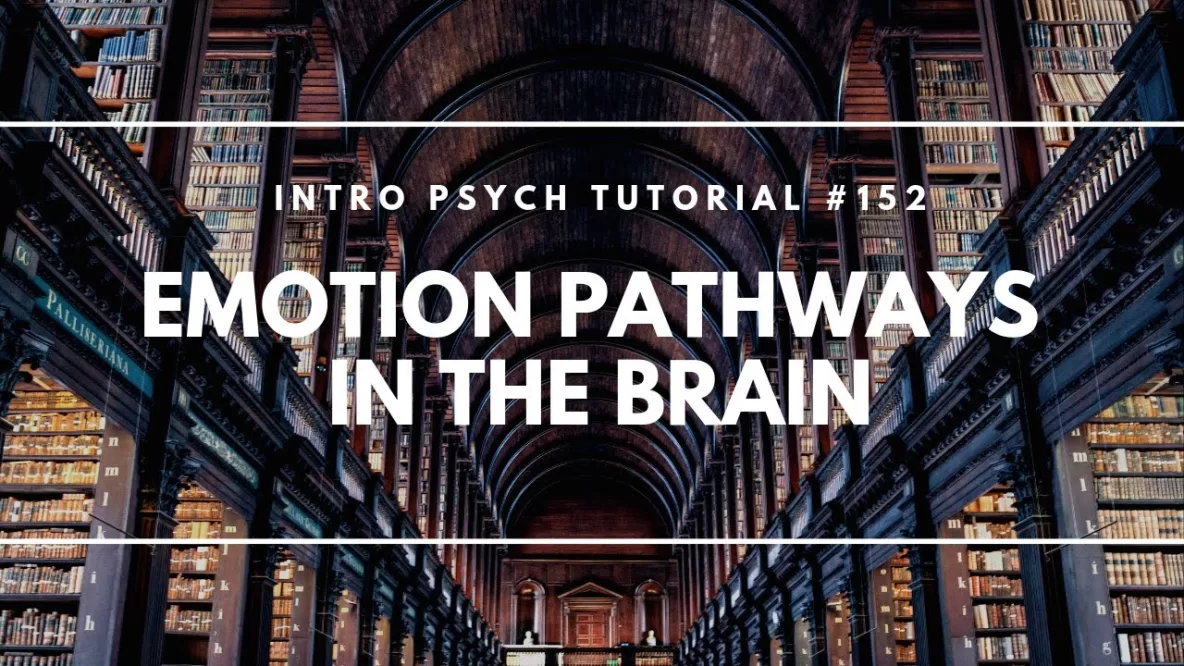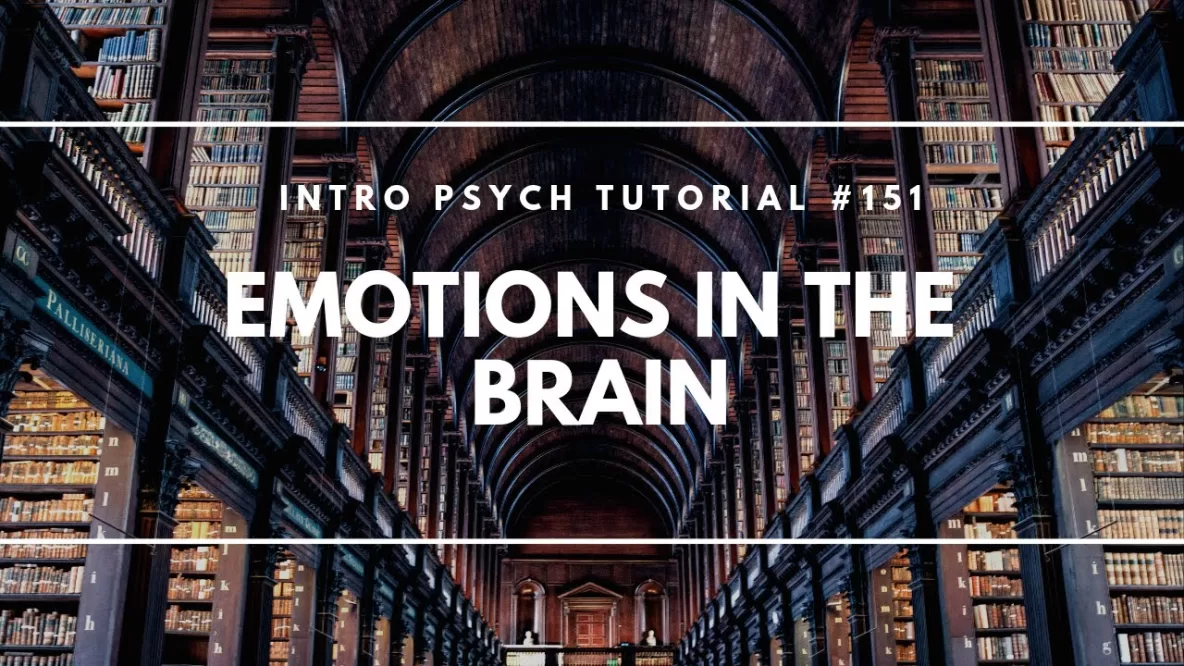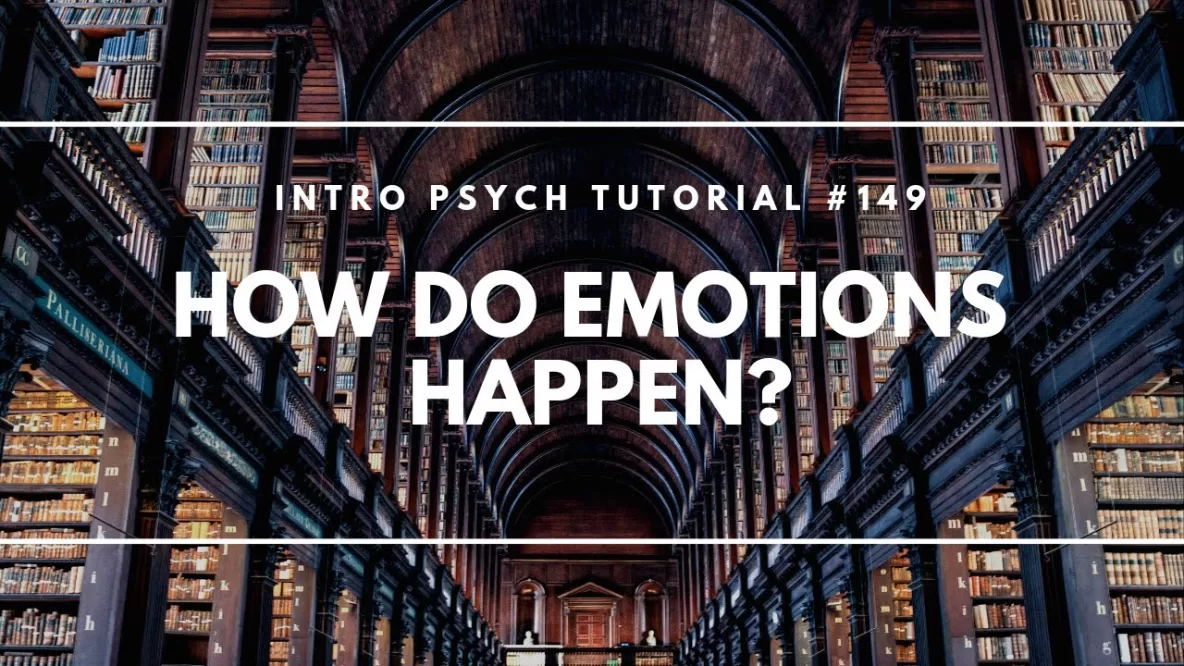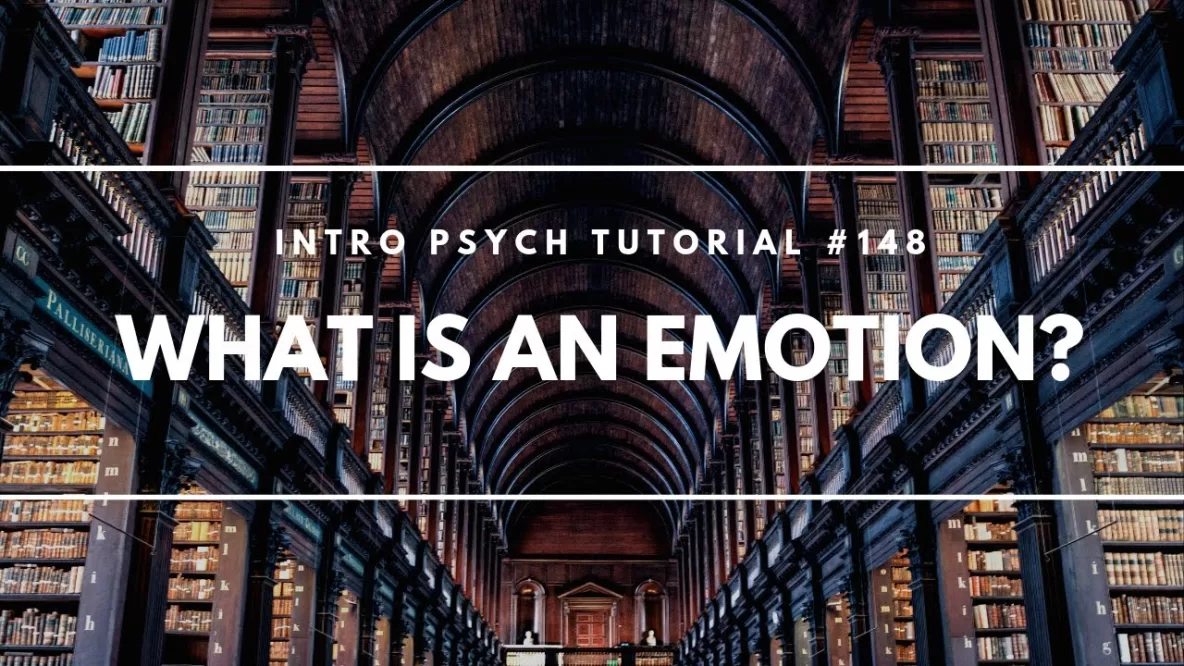In this video I describe Clark Hull’s Drive Reduction Theory. This theory proposes that behaviors can be considered rewarding because they reduce drives. Drives can then be regarded as primary drives or secondary drives, depending on whether they directly aid … Read More
Motivation: Instincts & Drives
www.psychexamreview.com In this video I describe two theories of motivation; the concept of instincts and drive theory. Instincts referred to inherited tendencies that were considered to motivate behavior without any prior experience. Later, drive theory proposed that departures from an … Read More
Why Do We Have Emotions?
In this video I discuss why we have emotions and how they play a role in our assessments of good and bad, our decision-making, and even our perception. I describe the hedonic principle, Antonio Damasio‘s patient Elliot, and the rare … Read More
Emotional Expression & Social Interaction
In this video I discuss the importance of emotional expression in social interaction and how we use signals from others to gauge their emotional states. This also relates to display rules for when it’s appropriate to express certain emotions and … Read More
The Expression of Emotions
In this video I discuss how emotions are more than just internal states and that we express them to others and also recognize the expressions of others. We communicate our emotional state to others in a number of ways, including … Read More
Emotional Regulation
In this video I discuss the role of the cortex, particularly the frontal lobes, in emotional experience. Cortical involvement in emotions means that we can use cognitive and behavioral strategies in how we respond to emotional stimuli and how we … Read More
Emotion Pathways in the Brain
In this video I describe the two pathways leading to the emotion processing areas of the brain described in the previous video. The fast pathway (or low road) goes to the amygdalae and allows for a quick and dirty emotional … Read More
Emotions in the Brain
In this video I describe two early studies looking at the role of brain structures in emotion processing; work by Heinrich Kluver & Paul Bucy, and James Olds & Peter Milner. These studies helped to identify the role of structures … Read More
How Do Emotions Happen?
In this video I describe 3 different theories of emotion which attempt to explain how emotional experiences occur. The James-Lange theory proposes that a stimulus causes physiological arousal which in turn causes the emotion. The Cannon-Bard theory of emotion proposes … Read More
What is an Emotion?
In this video I introduce the concept of multidimensional scaling to investigate emotions more objectively. This approach involves considering emotional experiences on two dimensions; valence and level of physiological arousal. Valence refers to how strongly an emotion is experienced as … Read More

